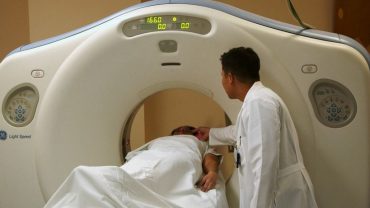Erasmus language courses – a gateway to a world without language barriers
In today’s world, proficiency in foreign languages is not only an asset but often a requirement. Erasmus language courses open doors to international communication and culture, enabling students and young adults to acquire valuable skills.
History of the erasmus program
The Erasmus Program, which revolutionized education in Europe, was launched by the European Commission on June 15, 1987. Its name, paying homage to Erasmus of Rotterdam – an eminent humanist and Renaissance philosopher, has become synonymous with international academic exchange. The program aimed to finance student exchanges for studies in another European country for up to one year and to support European higher education cooperation.
Erasmus began as a student exchange program but over time expanded its activities to include staff exchanges, cooperation in curriculum development, and cross-border partnerships between higher education institutions. The program also facilitated mutual recognition of credits and exams by participating universities, thanks to the European Credit Transfer System.
Future of erasmus language courses
In the face of ongoing changes in education and increasing globalization, Erasmus+ language courses play a significant role in shaping the future of international education. This program continues to evolve, adapting its teaching methods to modern technologies and changing participant needs.
New technologies and teaching methods
The introduction of new technologies, such as e-learning platforms, mobile applications, and language learning aids, enables Erasmus+ course participants to learn in a more flexible and interactive manner. This allows participants to continue language learning even after returning to their home country, increasing the effectiveness and sustainability of educational outcomes.
Online language support
The Online Language Support (OLS) system is another tool designed to help program participants improve their language skills needed for employment, study, or volunteering abroad. OLS offers language courses, language proficiency tests, and self-learning materials.
Accessibility and diversity
The Erasmus+ program aims to increase the accessibility of language courses to a wide audience. The course offerings are becoming more diverse, encompassing not only European languages but also less common languages, addressing the needs of the global job market.
Mobility and international cooperation
Erasmus+ language courses also serve as a platform for international cooperation and exchange of experiences. Participants have the opportunity to connect with individuals from different countries, fostering the building of an international professional and cultural network.
Professional development for teachers
Erasmus+ places a strong emphasis on the professional development of foreign language teachers. Methodological courses and teacher training are integral parts of the program, resulting in improved teaching quality and the updating of teaching methods.
Challenges and Perspectives of Erasmus language courses
Despite many positive aspects, Erasmus+ language courses face challenges such as ensuring equal access for participants from different backgrounds and adapting programs to the individual needs of learners. The future of Erasmus+ language courses will depend on how the program addresses these challenges and effectively harnesses the potential of new technologies in education.
Erasmus language courses – summary
Erasmus language courses are an investment in the future. They not only aid in language learning but also contribute to intercultural and professional development. Despite certain challenges, the benefits of participating in the program are invaluable.







